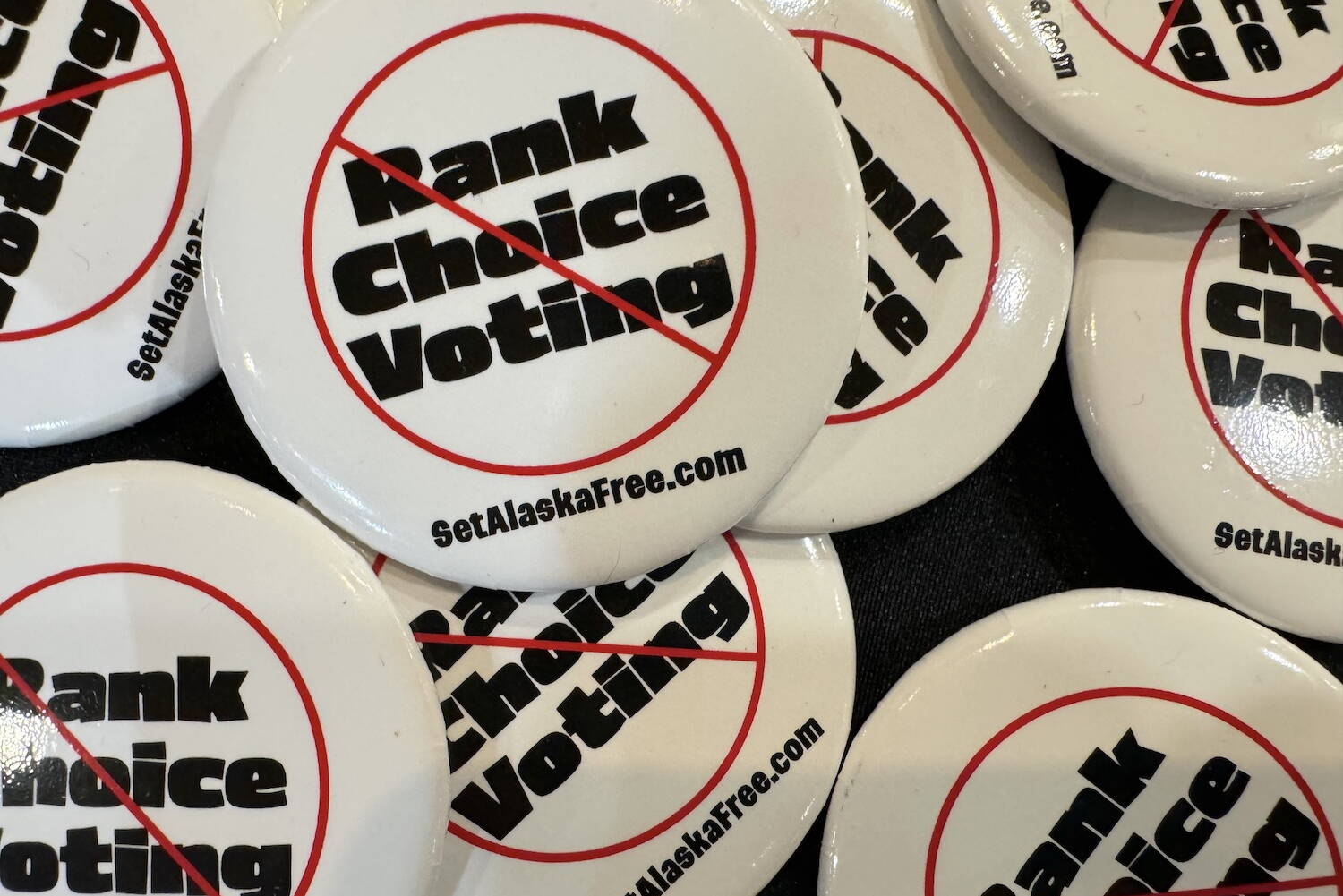Correction: The initial version of this article incorrectly listed Alaskans for Better Elections as the plaintiff. The group is not the plaintiff and is not paying plaintiffs’ legal fees.
An Anchorage Superior Court judge has ruled in favor of a proposed ballot measure that seeks to roll back the state’s elections system to what it was before 2020.
In an order published Friday, Judge Christina Rankin sided generally with the state and rollback supporters, saying elections officials acted appropriately by allowing petitioners to fix problems with petition booklets needed to call a vote this November.
A group of plaintiffs who support the current system had sued the Alaska Division of Elections in April, claiming the state improperly certified the rollback measure.
If approved by voters in November, the measure would eliminate the state’s open primary system, allowing political parties to limit who may run in and vote in primary elections.
Instead of a ranked-choice general election that allows voters to sort candidates in order of preference, voters will be asked to pick just one candidate.
Attorneys representing the plaintiffs had challenged state officials’ decision to allow petitioners to fix signature booklets that had not been properly notarized.
If the booklets were disqualified, petitioners wouldn’t have had enough signatures to advance the rollback measure to a November vote.
But Rankin, citing instructions given by the Division of Elections as far back as 2015, noted that the division has long allowed petitioners to make minor fixes to their booklets after the deadline to submit them for consideration.
That practice is legal, she concluded, under a 2006 Alaska Supreme Court decision that said in part: “The right to initiative is a key feature of Alaska’s governance. Our Supreme Court has reiterated on several occasions that the right to initiative is not to be defeated by technical rule violations.”
Rankin said the problem cited by plaintiffs is “precisely the type of technical rule violation that warrants application of the constitutional principle of interpreting legislative procedures in favor of placing initiatives on the ballot.”
Friday’s order wasn’t a complete victory for the state and supporters of the initiative to roll back ranked choice voting, who intervened in the case.
Rankin said that plaintiffs should be given an opportunity to present expert testimony that could raise other irregularities with the signature-gathering process.
A five-day trial addressing the issues raised by the expert is slated to begin June 24, and Rankin is expected to issue a final ruling by July 19.
Regardless of her eventual verdict, an appeal to the Alaska Supreme Court is expected, with a ruling before ballots are printed for the November general election.
• James Brooks is a longtime Alaska reporter, having previously worked at the Anchorage Daily News, Juneau Empire, Kodiak Mirror and Fairbanks Daily News-Miner. This article originally appeared online at alaskabeacon.com. Alaska Beacon, an affiliate of States Newsroom, is an independent, nonpartisan news organization focused on connecting Alaskans to their state government.

